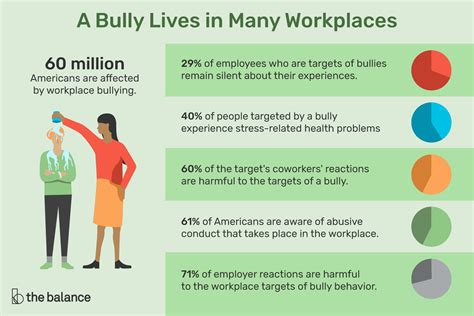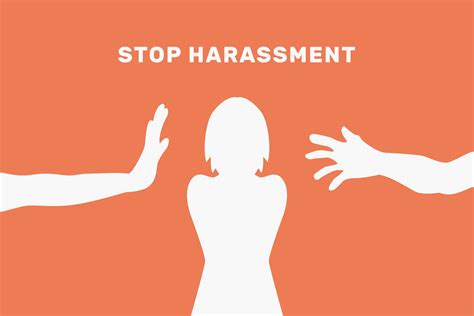
- How to Deal With Harassment in the Workplace
- Responding to Harassment
- Maintaining a Professional Attitude
- Document, Report, and Seek Support
- Addressing Harassment Effectively
- Dealing with Workplace Harassment: A Guide to Protecting Yourself
- Document Everything
- Seek Support
- Report the Harassment
- Explore Legal Options
- Take Care of Yourself
- How to Deal with Harassment in the Workplace
- Protecting Your Rights
- Coping with Harassment
- Preventing Harassment

How to Deal With Harassment in the Workplace
Harassment in the workplace is a serious issue that can make it difficult to do your job and create a hostile work environment. If you are being harassed, it is important to know your rights and how to report it so that you can take action to stop it. Harassment can take many forms, including verbal, physical, sexual, and cyberbullying. It can be perpetrated by a supervisor, a coworker, or even a customer.
Responding to Harassment
If you are being harassed, it is important to document the incidents and report them to your supervisor or HR department. You should also keep a record of all communications, both verbal and written, that are related to the harassment. Reporting harassment can be difficult, but it is important to remember that you are not alone and that there are people who can help. It is also important to remember that you have the right to a safe and harassment-free workplace. If you are afraid to report the harassment, you can contact an outside organization, such as the Equal Employment Opportunity Commission (EEOC).
The EEOC is a federal agency that enforces laws against workplace discrimination. The EEOC can investigate your complaint and take action against your employer if they find that you have been harassed. You can also file a lawsuit against your employer if you have been harassed. However, it is important to note that filing a lawsuit can be a long and expensive process. It is also important to remember that you may not be able to recover all of your losses if you win your case.
If you are being harassed, it is important to take action to stop it. This may involve reporting the harassment to your supervisor or HR department, contacting an outside organization, or filing a lawsuit. It is also important to remember that you have the right to a safe and harassment-free workplace.
**How to Deal with Harassment in the Workplace: A Guide for Employees**
Navigating workplace harassment can be a daunting experience, leaving you feeling vulnerable and unsure of what to do. Whether it’s verbal or physical abuse, unwanted sexual advances, or discriminatory behavior, workplace harassment is a serious issue that requires immediate attention. Here’s a comprehensive guide to help you understand your rights, respond effectively, and minimize the impact of harassment:
Maintaining a Professional Attitude
Even when faced with the emotionally draining nature of harassment, maintaining a calm and professional demeanor is crucial. It’s easy to react in the heat of the moment, but impulsive behavior can escalate the situation and jeopardize your case. Instead, strive to remain composed, avoid engaging in any form of harassment yourself, and focus on documenting the incidents clearly and objectively.
Document, Report, and Seek Support
It’s imperative to document every instance of harassment, no matter how seemingly minor. Keep a record of the date, time, location, details of the harassment, and the individuals involved. This meticulous documentation will serve as irrefutable evidence when reporting the matter to your supervisor, HR department, or a higher authority. Simultaneously, seek support from trusted colleagues, a union representative (if applicable), or an outside organization dedicated to supporting victims of workplace harassment.
Addressing Harassment Effectively
When addressing harassment, it’s important to approach the situation in a direct yet respectful manner. Request a private meeting with the alleged harasser and clearly state that their behavior is unacceptable. Express your concerns calmly and professionally, providing specific examples of the harassing conduct. Avoid accusations or confrontations; instead, focus on how their actions have affected you and request them to cease and desist. If the harassment persists, don’t hesitate to escalate the matter to a higher authority or file a formal complaint.
Dealing with Workplace Harassment: A Guide to Protecting Yourself
If you find yourself subjected to harassment in the workplace, know that you are not alone. Harassment is a serious issue that can have a profoundly negative impact on your physical and mental well-being. It is essential to take immediate action and address the situation head-on.
Unfortunately, many victims of workplace harassment hesitate to speak up due to fear of retaliation or a sense of shame. However, it’s crucial to remember that you have the right to a safe and respectful work environment. Remaining silent only allows the harassment to continue and potentially escalate.
Taking proactive steps to deal with harassment is the best way to protect yourself and others. Here are several strategies to consider:
Document Everything
When you are harassed, it is imperative to document every incident as thoroughly as possible. Write down the date, time, location, and a detailed description of what happened. If possible, record the names of any witnesses present. This documentation will serve as valuable evidence if you decide to file a complaint or take legal action.
Seek Support
Dealing with harassment alone can be an overwhelming experience. Seek support from trusted sources such as a colleague, friend, or family member who can provide emotional support and assistance. Having someone to confide in can reduce stress and help you cope with the situation more effectively.
Report the Harassment
Report the harassment to a supervisor, manager, or Human Resources department within your company. Provide them with the documentation you have gathered and explain the situation clearly and calmly. It is essential to act promptly and follow up regularly to ensure that the situation is being addressed appropriately.
Explore Legal Options
If internal reporting does not resolve the harassment or if you feel your safety is at risk, consider exploring legal options. Speak to an attorney who specializes in workplace harassment to understand your rights and the best course of action. Legal assistance can provide you with additional protection and support.
Take Care of Yourself
Dealing with workplace harassment can take a toll on your emotional and physical health. Prioritize self-care and seek professional help if needed. Engage in activities that promote relaxation, reduce stress, and boost your overall well-being. Remember that your health and safety are of paramount importance.
How to Deal with Harassment in the Workplace
Harassment in the workplace can take many forms, from unwanted sexual advances to verbal abuse. It can be a difficult situation to deal with, but it’s important to know that you’re not alone. There are many resources available to help you, and you should never have to tolerate harassment.
The first step in dealing with harassment is to document the behavior. Keep a record of what happened, when it happened, who was involved, and any witnesses. This will help you if you need to file a complaint with your employer or the Equal Employment Opportunity Commission (EEOC).
Once you have documented the harassment, you should report it to your supervisor or HR department. It’s important to be clear and direct about what happened. Don’t be afraid to use the word “harassment.” If your employer does not take action, you may need to file a complaint with the EEOC.
Protecting Your Rights
If you file a complaint with the EEOC, they will investigate your case and determine if there is enough evidence to support your claim. If they find that you have been harassed, they may take action against your employer, such as ordering them to stop the harassment or pay you damages.
You can also file a lawsuit against your employer for harassment. However, this can be a long and expensive process, so it’s important to weigh your options carefully before taking this step.
Coping with Harassment
Dealing with harassment can be difficult, but it’s important to remember that you’re not alone. There are many resources available to help you, and you should never have to tolerate harassment.
Here are a few tips for coping with harassment:
- Talk to someone you trust, such as a friend, family member, or therapist.
- Join a support group for people who have been harassed.
- Practice self-care by eating healthy, getting enough sleep, and exercising regularly.
- Don’t let the harasser get to you. Stay strong and focus on your work.
- Remember that you have the right to be treated with respect.
Preventing Harassment
Harassment is a serious problem, but there are things that you can do to prevent it from happening to you or someone you know. Here are a few tips:
- Be aware of your surroundings and the people around you.
- Avoid being alone with someone who makes you feel uncomfortable.
- Set clear boundaries and let people know what you will and will not tolerate.
- Speak up if you see or hear something that is harassing.
- Support others who have been harassed.
Harassment is a serious problem, but it can be prevented and overcome. By following these tips, you can help to create a more respectful and inclusive workplace for everyone.


